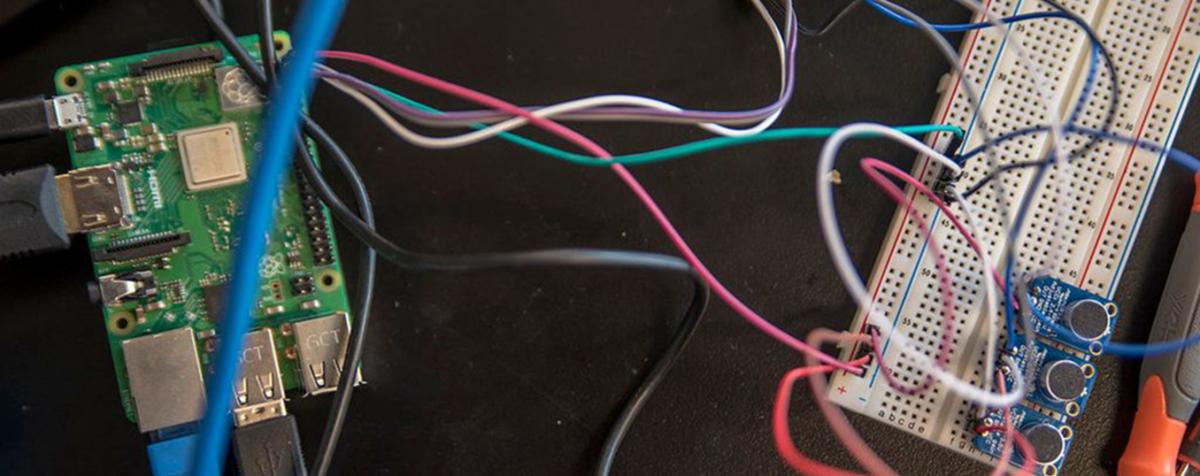Students in the Master of Science in mechatronic systems engineering program study, research and practice across the fields of electrical, mechanical and computer engineering. This cross-disciplinary major is customizable with specialization areas and thematic course sequences to align with your specific areas of interest and career goals. From developing service robots to aid children with special needs, to inventing unmanned vehicle systems to monitor traffic congestion, there are numerous ways for mechatronic systems engineers to apply their knowledge in the public and private sectors.
Our programs are designed to give students the opportunity to develop a wide breadth of knowledge while going deeper in a specialization area of their choice. With curricula geared toward today's grand challenges, graduates of the mechatronic systems engineering program will enter a workforce where their skills are in high demand. Graduates can pursue careers as multidisciplinary engineers or go on to work in electrical, computer or mechanical engineering.
Featured Courses
ENCE 4620
Advanced Computer Vision
About this Course
This course covers advanced concepts in image processing and computer vision including but not limited to image radiometry and geometric formation, edge detection, geometric based transformations (e.g., image warping and morphing), camera calibration, Epipolar geometry, and stereo feature matching. Other advanced topics include optical flow, shape from shading, and three-dimensional object recognition. In conclusion, students learn and practice advanced topics in image processing and computer vision techniques that can be used in other areas such as robotics, pattern recognition, and sensor networks. Cross listed with ENCE 3620. Prerequisite: ENEE 3311.
ENGR 4740
Adaptive Control Systems
About this Course
Theoretical and application aspects of robust adaptive control design for uncertain dynamical systems. Topics include: parameter estimation, stability, model reference adaptive systems, self-tuning regulators, gain scheduling, design for robustness against unmodeled dynamics and disturbance signals. Examples will be given from aerospace engineering (changes in the dynamics of aircraft), process control, and robotics. Modern alternatives to traditional adaptive control will be discussed (switching multi-model/multi-controller adaptive schemes). Prerequisites: ENEE 3111, ENGR 3610, and ENGR 3721, or permission of instructor. Familiarity with MATLAB/Simulink.
ENGR 3730
Robotics
About this Course
Introduction to the analysis, design, modeling and application of robotic manipulators. Review of the mathematical preliminaries required to support robot theory. Topics include forward kinematics, inverse kinematics, motion kinematics, trajectory control and planning, and kinetics. Cross listed with ENGR 4730. Prerequisites: ENME 2520 and MATH 2060 or MATH 2200 or permission of instructor.
Application Information
Take the first step toward your academic career at the Ritchie School and start your application today.



